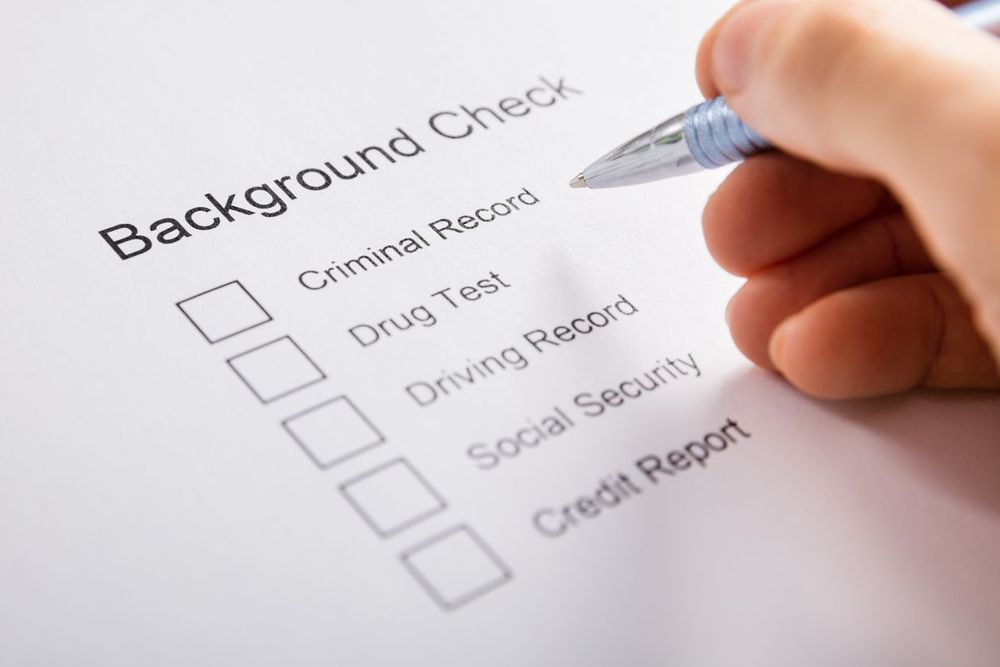
You make it through the interview and may even receive a job offer. But there's one thing standing between you and a new job- the background check. Not every employer performs one, but most do. And when an employer requires a background check, they put some weight into the results. Learn more about what an employer looks for and find out how it can affect your employment.
A hiring manager won't take everything you say at face value. For that reason, they use the background check to identify red flags, gauge your trustworthiness, and verify your claims. Although every employer has unique needs and wants, they pay attention to the same details in the background check. Usually, those details include the following:
If you agree to do a background check, you can expect the employer to consider your criminal history. That said, they won't necessarily disqualify you from the job. When the results of the background check come in, the employer will look at the specifics of your history. They consider the nature of your crime and whether or not you were ever convicted.
You might be surprised to know that most employers will give you an opportunity to explain your criminal history. Typically, they take the time to ask you about your conviction and the circumstances surrounding it. You shouldn't let your past stop you from applying for certain jobs.
That said, there are certain industries that demand a clean record. For instance, a high-security job won't hire anyone with a record. Likewise, an employer is unlikely to hire you if the job involves working with kids or the elderly and you have a record. If you have a criminal history, consider the specifics of the job and be realistic.
Perhaps more important than your criminal history is your drug and alcohol use. Before agreeing to hire you, an employer might require you to pass a drug and alcohol test. Even if you legally use medical marijuana, you should be cautious about using it during the job hunt. Medical marijuana is only legal on a state level in some states. Therefore, certain employers could disqualify you based on marijuana use.
While you might think your credit report is irrelevant, an employer could decide to disqualify you for a position based on poor credit. Over the past few years, more and more employers have been looking at their candidates' credit histories. The laws vary by state, but most states allow employers an opportunity to view a credit report before offering a position to a prospective candidate.
Your credit history usually won't be a deal-breaker, but it could bear some weight on the hiring decision. If your credit history doesn't match up with things you mentioned in your interview or if you're applying for a financial job, your credit history plays an important role. So, will a poor credit history eliminate you from receiving a job offer? No, but it might sway a hiring manager one way or another.
If a bankruptcy filing shows up on your background check, you could also be in trouble. An employer can see that you went bankrupt, but they usually can't see why you went bankrupt. Generally, an employer will give you a chance to explain what happened. You can use this as an opportunity to show you've learned from your mistakes.
Employers understand that divorce, medical complications, and other events often result in bankruptcy. Unless your desired position is in the financial sector, bankruptcy shouldn't be held against you. You can overcome that part of your past.
Your driving history is irrelevant for a position that doesn't involve on-the-job driving. However, it does matter for trucking positions and other jobs that require driving. An employer won't want to risk having someone with a bad driving record behind the wheel of a company vehicle.
If you happen to have a DUI on your driving record, an employer might think twice before hiring you. Once again, you need to explain the situation. Own up to your mistakes and explain how you learned from the situation. It doesn't need to be the reason you don't get a job offer.
If you've ever had the temptation to lie about your education credentials on a resume, think twice. During the background check, an employer will probably look into your educational history. They may even ask you to provide a copy of your diploma or other achievements. As long as you haven't been deceitful, you don't need to have any concerns.
In certain situations, employers have access to your complete employment history. As long as you were honest on your resume and in your interview, this shouldn't hurt you. Most employers won't hire someone who was dishonest on their resume unless there's a good reason for the omission or lie.
If you're afraid of the background check, there are a few things you should know. First, be aware that you have some legal protections. You should look into your state laws regarding background checks and the information they can include. No matter where you live, an employer must show you a copy of the background report if they use it against you. In the event that you believe a hiring manager failed to comply with state or federal laws, consult with a lawyer.
Secondly, you should know that honesty is one way to keep the background check from hurting you. Rather than letting an employer find out about a conviction or bankruptcy through the background check, be upfront about it. This shows that you're trustworthy and also gives you a chance to explain yourself.
Finally, be prepared. After a background check, your prospective employer will probably have a few questions for you. Be ready to answer those questions and have confidence as you speak.
Lorem Ipsum is simply dummy text of the printing and typesetting industry. Lorem Ipsum has been.
